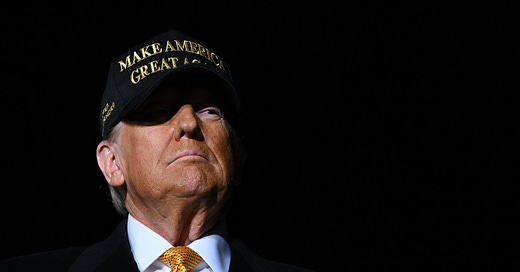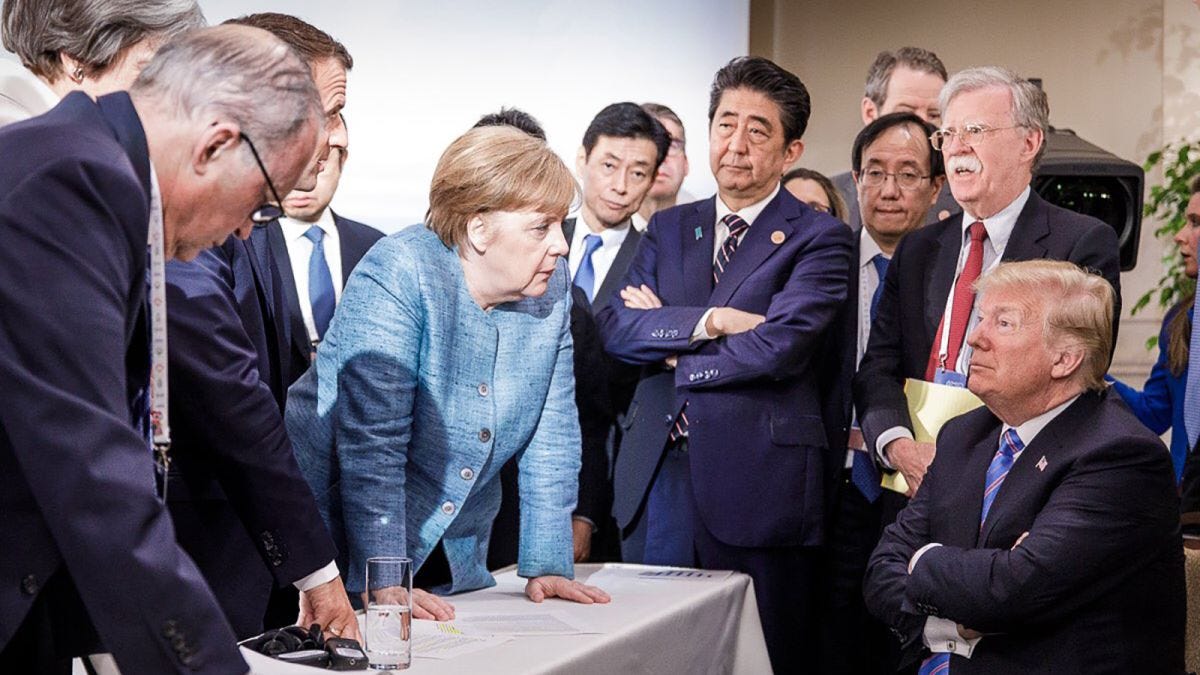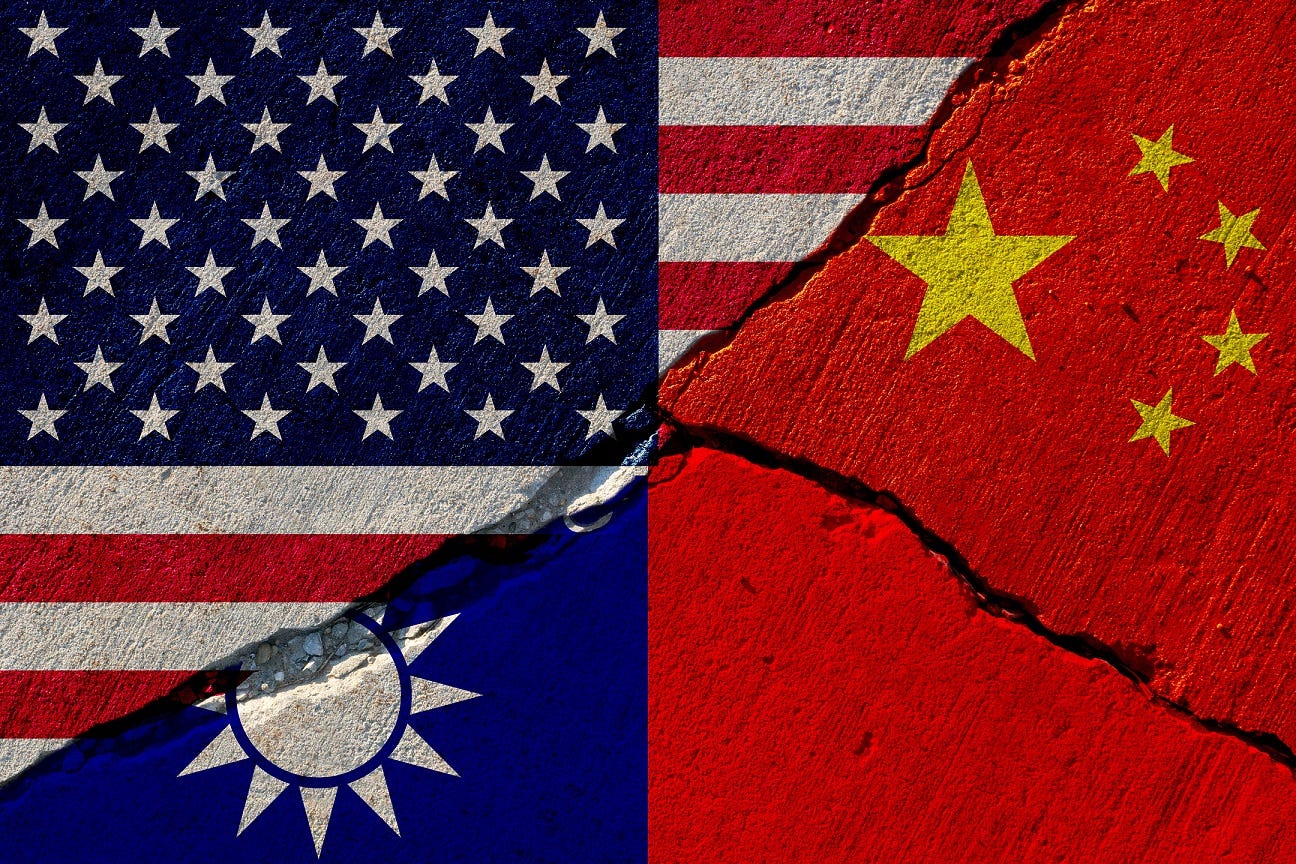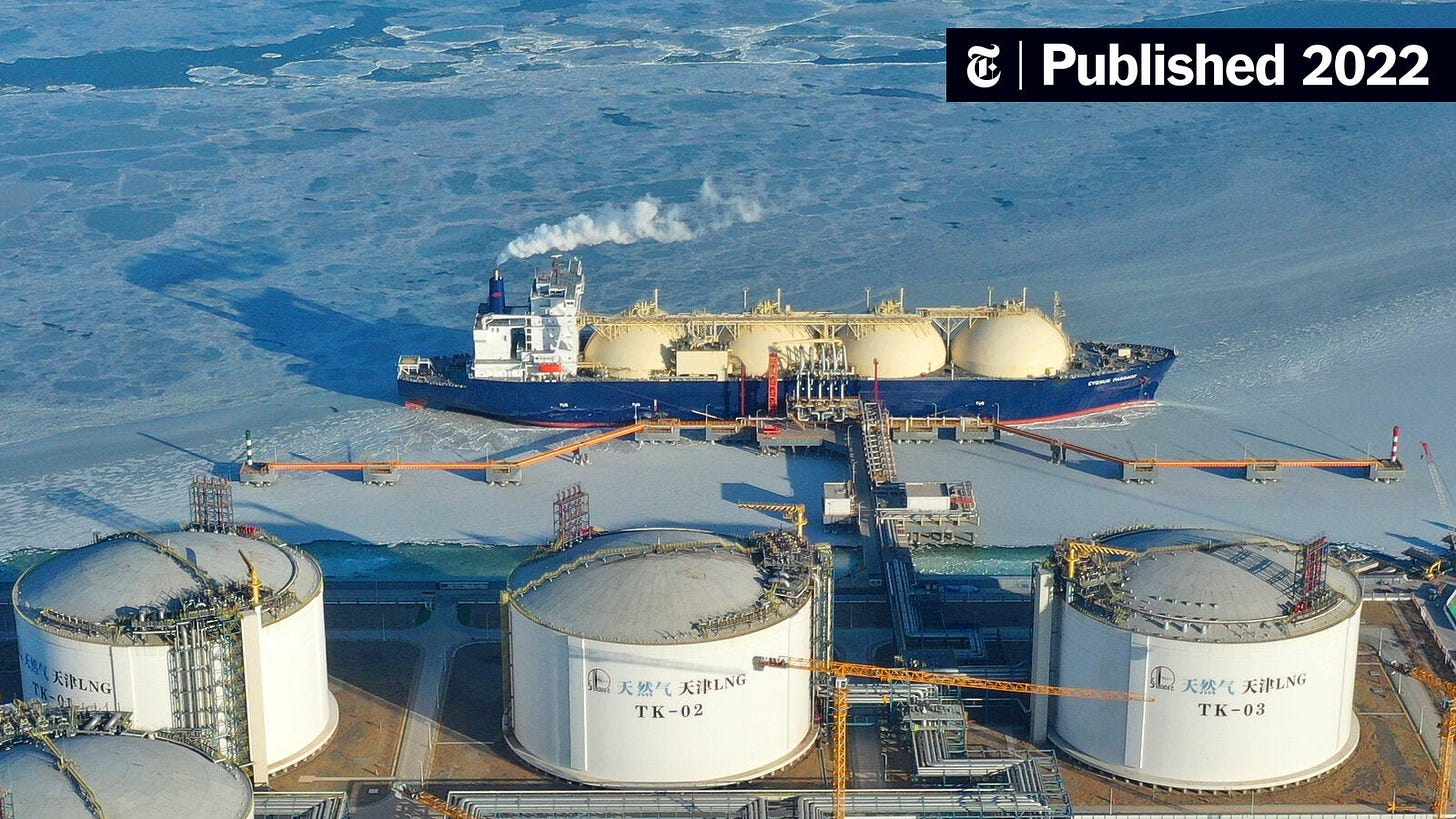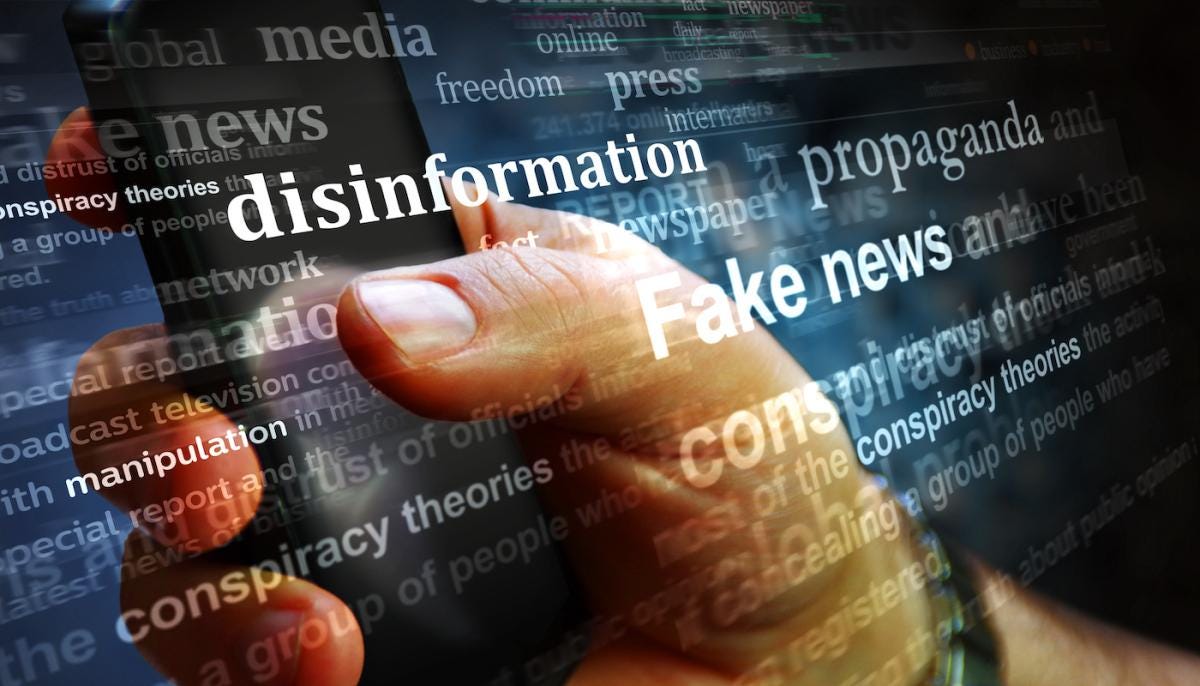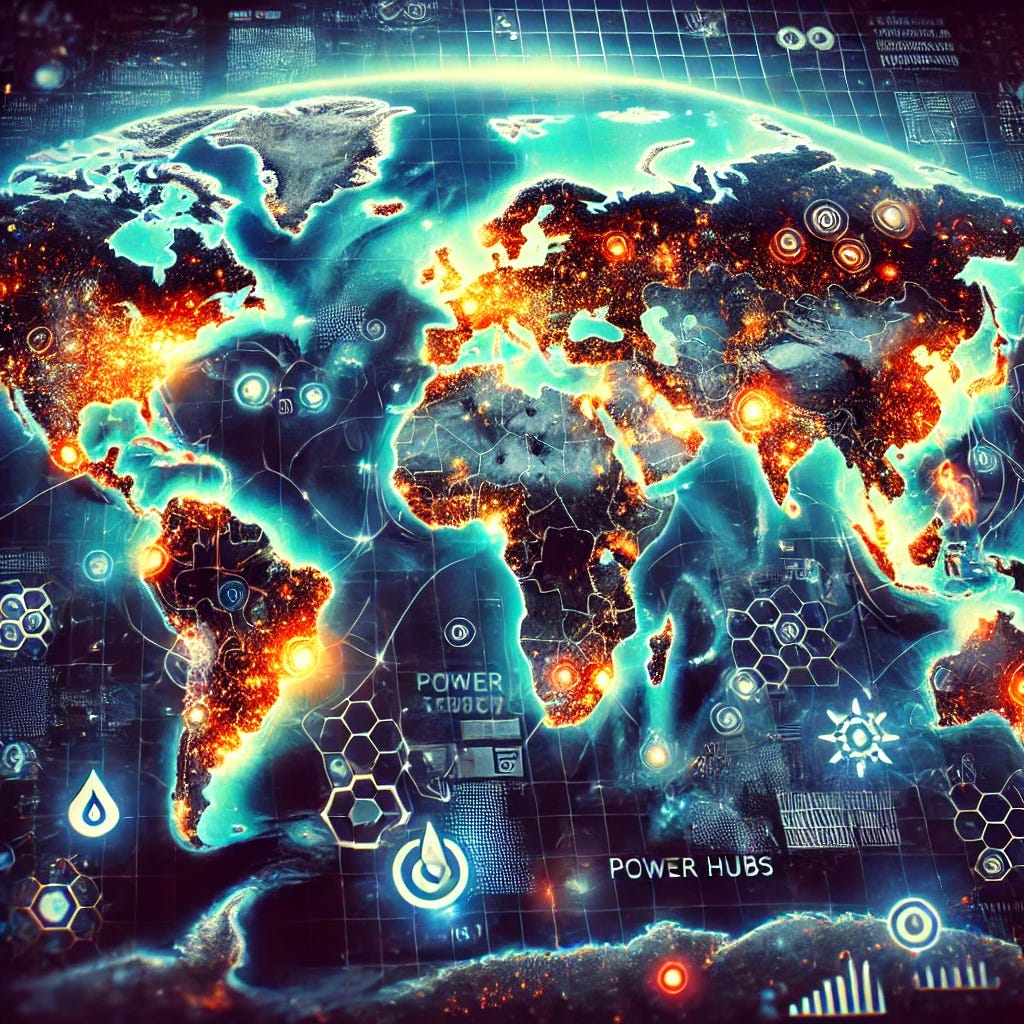The Dark Deal: Trump’s Geopolitical Strategy and the Rise of a New Global Order
Insights from the interview between Nicolas Morás and Antonio Valdez provide a profound exploration into the shifting dynamics of global power, focusing on the role of key actors like the United States, China, and Russia, as well as the emerging geoeconomic blocs. With an emphasis on the strategic importance of resources, energy policies, and regional alliances, the discussion offers an in-depth look at the evolving world order, forecasting a future shaped by geopolitical competition, hybrid conflicts, and economic nationalism. The following breakdown represents the key themes and insights shared in the conversation, offering a detailed analysis of the strategic realignments taking place globally.
Trump’s Return and the End of Globalization
Antonio Valdez emphasizes that the Trump administration marked a clear break from the traditional model of globalization. The “America First” doctrine championed by Donald Trump prioritized the United States' national interests, particularly focusing on restoring U.S. manufacturing, reducing the country’s reliance on global supply chains, and boosting energy independence. According to Valdez, Trump’s policies heralded the end of the era of unbridled globalization, where the U.S. had accepted an interconnected world, and instead set the stage for a new world order based on economic nationalism and regional alliances.
Valdez highlights that under Trump, energy policies became central to U.S. foreign strategy. The push for energy independence through increased domestic oil production, fracking, and the export of natural gas was framed not only as a way to boost the U.S. economy but as a means of reducing dependency on foreign energy sources. This move, Valdez argues, enabled the United States to maintain its economic power and allowed for greater leverage in geopolitical negotiations. The emphasis on resource independence is part of a broader trend of nations focusing on self-sufficiency, signaling a decline in global cooperation in favor of more protectionist and self-interested policies.
Geoeconomic Blocs and Strategic Resource Competition
A significant portion of the interview focuses on the growing importance of rare earth minerals, such as lithium, cobalt, and coltan. These minerals are critical for producing advanced technologies, from smartphones to military hardware, and their importance to national security is becoming increasingly evident. Valdez underscores how nations and private entities, such as Elon Musk’s ventures, are aggressively securing control over these resources to strengthen their positions in global competition. For example, the U.S. and China’s intense rivalry is partly driven by the need to secure rare earths, which are essential for technological dominance.
The competition for resources is not confined to minerals alone; Valdez also draws attention to the geopolitical significance of regions rich in these resources, particularly parts of Africa and Latin America. As China continues to expand its economic and political influence through its Belt and Road Initiative (BRI), it is investing heavily in these regions. However, this geopolitical maneuvering is also contributing to new global fault lines, as nations like the U.S. and India aim to counter China’s reach. Moreover, Valdez stresses the militarization of global economies, noting that many countries are integrating dual-use technologies—those that serve both civilian and military purposes—into their national strategies, with particular focus on areas like artificial intelligence and cybersecurity.
China’s Expanding Influence and Internal Vulnerabilities
While China’s global influence continues to grow, Valdez identifies several internal vulnerabilities that could impede its long-term ambitions. One of the major challenges facing China is its demographic decline, which is exacerbated by the one-child policy's long-term effects. This demographic shift could lead to a shrinking labor force and increased economic challenges as the population ages. In addition to these demographic pressures, China’s economy is facing a significant real estate crisis, with many families investing heavily in property, leading to a burst in the housing bubble. These factors contribute to growing economic instability within China, creating a precarious foundation for its future.
Despite its growing power, China’s geopolitical alliances are not as strong as they may seem. Valdez points out that China’s relationship with Russia is more strategic than ideological, and that there are historical tensions between the two powers that prevent a fully unified front. Additionally, while China and India share economic ties, they also face ongoing territorial disputes, particularly over border areas, which complicate their relationship. India’s growing industrial capabilities, particularly in areas where China has traditionally dominated, further intensify the competition between these two giants. The U.S. and its allies continue to view China as a rival in key industries, and Valdez suggests that the geopolitical landscape in Asia will be increasingly defined by competition between these powers.
The Fragility of Europe’s Strategic Position
Europe’s strategic vulnerability is a central theme in the interview. Valdez criticizes European leaders for prioritizing environmental and social agendas at the expense of energy security and defense preparedness. He argues that the European Union’s dependence on Russian energy supplies, particularly natural gas, has left it exposed to geopolitical leverage from Moscow. The ongoing war in Ukraine further complicates Europe’s security situation, and Valdez warns that without a cohesive defense strategy, Europe risks further fragmentation. He points to the increasing influence of China and Russia within European markets and warns that Europe’s failure to address its energy and defense needs could result in a decline in its global standing.
Valdez stresses the need for Europe to adopt a more pragmatic approach to its defense and economic policies. He suggests that Europe must reevaluate its reliance on external powers, particularly the U.S. and Russia, and pursue greater strategic autonomy in areas like energy production and military defense. This shift would require a long-term strategy to safeguard Europe’s economic and security interests in the face of growing external pressures.
U.S.-China Cold War: The New Strategic Landscape
According to Valdez, the world is entering a new Cold War between the United States and China. While China’s economic rise presents a formidable challenge to U.S. dominance, the U.S. still holds a significant strategic advantage. The U.S. maintains a vast network of global allies, controls key international institutions, and holds considerable influence over the global financial system. These advantages, coupled with the growing importance of hybrid conflict strategies—including cyberattacks, economic sanctions, and technological competition—suggest that the U.S. is well-positioned to maintain its global leadership in the face of China’s rise.

Valdez suggests that this new Cold War will be defined by technological and economic competition, with countries seeking to gain the upper hand in areas like artificial intelligence, semiconductors, and 5G technology. He also emphasizes the importance of military readiness and the role of cyber defense in this new conflict. The U.S. is expected to leverage its technological edge and military alliances to counter China’s growing influence, while China will continue to use its economic power to expand its global footprint, particularly through the Belt and Road Initiative and its technological investments.
The Role of Media, Misinformation, and Cybersecurity
The interview also explores the growing impact of media and misinformation on global geopolitics. Valdez highlights the role of fake news, disinformation campaigns, and state-sponsored media as tools used to influence elections, destabilize governments, and sway public opinion. He argues that controlling the narrative has become a critical component of modern warfare, and countries must be prepared to counter these tactics as part of their broader defense strategies.
Cybersecurity is another focal point of Valdez’s analysis. He warns that the world is entering an era where cyberattacks will play a central role in geopolitical conflicts. As nations increasingly rely on digital infrastructure, securing this infrastructure from attacks becomes vital to maintaining national security. Valdez stresses the need for robust cybersecurity measures and the development of strategies to prevent and mitigate the impact of cyber warfare, particularly in critical sectors such as energy, finance, and communications.
Opportunities and Challenges in a Multipolar World
In conclusion, Valdez argues that the world is entering a multipolar era where power is more evenly distributed across several global players, including the U.S., China, Russia, and emerging powers in Africa and Latin America. This new world order will present both significant challenges and opportunities. Valdez emphasizes that countries must be strategic and adaptable, as they navigate the risks and rewards of a more fragmented global landscape.
Technological advancements, particularly in artificial intelligence, automation, and renewable energy, present significant opportunities for countries that can harness these innovations. However, Valdez cautions that these technologies must be managed carefully to avoid exacerbating inequalities and geopolitical tensions. In this multipolar world, nations must work to balance cooperation and competition, seizing the opportunities presented by technological and economic advancements while remaining vigilant against the risks of conflict and instability.
The New Global Order
As Nicolas Morás and Antonio Valdez discuss, the world is undergoing a profound transformation driven by shifting alliances, economic competition, and technological innovation. The rise of geoeconomic blocs, resource scarcity, and the growing tension between major powers, particularly the U.S. and China, are reshaping the global order. The future will be marked by hybrid conflicts, technological competition, and an increasing focus on national self-interest. Navigating this new global order will require strategic foresight, adaptability, and a willingness to engage in a rapidly changing geopolitical landscape. The next few years will be crucial in determining how the global balance of power evolves and which nations will emerge as the dominant forces in this new era.
Thank You for Reading! Help Us Keep Growing!
First off, a massive thank you to you, the reader, for taking the time to dive deep into this critical analysis of the Dark Deal and the new global power dynamics reshaping our world. Your engagement shows that you're not just staying informed—you're actively shaping the conversation. We appreciate every minute you’ve spent with us, and we’re here to continue bringing you the kind of hard-hitting, no-holds-barred analysis you won’t find anywhere else.
But here's where you come in: the digital world thrives on the power of community and engagement. If you found this article insightful, eye-opening, or even just thought-provoking, hit that LIKE button and SUBSCRIBE to our channel. It’s a small action that makes a huge impact. By liking and subscribing, you’re helping us reach more curious minds like yours and grow a community that demands real, unfiltered knowledge. Plus, we’ve got plenty more where this came from—exclusive content, deep dives, and more!
Be part of the movement. Share this article with friends and colleagues who are ready to look beyond the surface and see the world as it really is. Every click, share, and subscription fuels our ability to bring you even more in-depth discussions and timely updates on the most important global issues.
We’re just getting started, and we want YOU to be a part of this journey. So, don’t wait—hit that button now and let’s make sure this conversation continues to grow. Stay with us. Stay informed. And let’s make the world’s most complex issues understandable, one article at a time.
Thank you again for your support! 🙏


